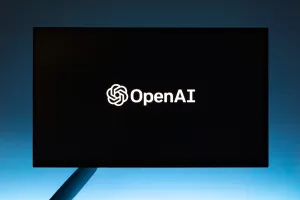Mobile gaming has grown by leaps and bounds in recent years, with millions of people worldwide engaging in games on their smartphones and tablets. With this surge in demand, the mobile game development industry is constantly striving to deliver innovative and immersive gaming experiences. One of the technologies revolutionizing this field is Generative Artificial Intelligence (AI). In this blog, we’ll explore how Generative AI is enhancing mobile game development and what possibilities it holds for the future of gaming.
Understanding Generative AI
Generative AI is a subset of artificial intelligence that focuses on generating content. It leverages algorithms and neural networks to create data, such as images, music, text, and even entire game environments. In the context of mobile game development, Generative AI can be a game-changer. Generative AI’s capabilities extend beyond static content creation; it can dynamically generate content in response to user interactions and preferences, offering limitless possibilities for mobile game design. By harnessing this technology, game developers can deliver more engaging and adaptive gaming experiences that captivate players and keep them coming back for more.
Procedural Content Generation
One of the most significant contributions of Generative AI to mobile game development is procedural content generation (PCG). PCG involves using algorithms to create game content, including levels, characters, items, and even narratives, on-the-fly or during the development process. This results in dynamically generated content, making each gameplay unique and keeping players engaged.
For example, in the mobile game “Minecraft,” the world is procedurally generated, ensuring that no two worlds are the same. This dynamic generation creates a sense of exploration and unpredictability, enhancing the player experience.
Now, let’s take a closer look at some key aspects of Procedural Content Generation and how it’s revolutionizing mobile game development:
Dynamic Level Design:
Generative AI can create intricate and ever-changing game levels. For instance, in a mobile racing game, AI algorithms can generate diverse and challenging race tracks, ensuring that players encounter new experiences with every race.Character Variation:
Game characters can benefit from procedural generation as well. AI can generate unique character designs, each with its own set of abilities and personalities, making the game world feel more vibrant and diverse.Balanced Gameplay:
Generative AI can analyze player performance and adjust the game’s difficulty in real-time. If a player is finding a certain level too challenging, the AI can tweak enemy behavior, item placement, or the environment to maintain an enjoyable level of challenge without becoming frustrating.
Improved Graphics and Visuals
Generative AI has also made a significant impact on improving the graphics and visuals of mobile games. AI-driven algorithms can generate realistic textures, animations, and visual effects, even on mobile devices with limited processing power. This means that mobile games can achieve console-level graphics, providing players with more visually immersive experiences.
Moreover, Generative AI can be used to optimize graphics for different devices, ensuring that the game runs smoothly on a wide range of smartphones and tablets. This adaptability is crucial for reaching a broader audience and providing a consistent gaming experience across various hardware configurations.
Consider the journey of a mobile game developer striving to create a visually stunning and technically optimized game:
Realistic Environments:
Creating lifelike environments is a complex and time-consuming task. Game designers and artists must meticulously craft every detail, from the texture of the terrain to the way light interacts with surfaces. Here’s where Generative AI steps in. AI-powered algorithms can take on the role of an artist, generating environments with an extraordinary attention to detail. Whether it’s simulating realistic water physics, creating dynamic weather systems, or generating lush forests, Generative AI can bring these environments to life. Players will feel more immersed than ever, as they explore game worlds that rival the realism of their favorite blockbuster movies.
Up-scaling and Optimization:
The mobile gaming landscape is incredibly diverse, with a multitude of devices boasting varying screen resolutions and processing power. Ensuring that a game looks and performs its best on all these devices can be a daunting challenge. Generative AI simplifies this process. By analyzing the capabilities of a player’s device, AI can dynamically adjust graphics settings, optimizing them for the specific hardware. This means that even players with older or less powerful devices can enjoy a visually appealing and smooth gaming experience. It’s a win-win situation, as developers can reach a wider audience without compromising on quality.
Art Style Generation:
In the highly competitive mobile gaming market, standing out is crucial. Developers are constantly searching for ways to differentiate their games and leave a lasting impression on players. Generative AI empowers them to do just that by enabling the creation of unique visual aesthetics. Whether it’s experimenting with pixel art reminiscent of retro classics or embracing the sleek look of cel-shading, AI can assist in crafting distinct art styles that set a game apart. This flexibility allows developers to cater to a wide range of artistic tastes and target demographics, ensuring that their game has a broader appeal.
Personalized Gaming Experiences
In today’s mobile gaming landscape, players demand experiences tailored to their preferences, and Generative AI is at the forefront of fulfilling these expectations. It dynamically adapts the gaming journey by finely tuning difficulty levels to ensure players neither face overwhelming challenges nor encounter boredom. For instance, if a level consistently proves too difficult, Generative AI intervenes with helpful hints or slight reductions in difficulty, ensuring a smoother progression.
Conversely, for adept players, it intensifies challenges to provide a more satisfying experience. Beyond gameplay, personalization extends to in-game purchases, where AI algorithms meticulously analyze player behavior and preferences, recommending in-game items or upgrades that not only align with their gameplay style but also pique their interest. This personalized approach not only enhances player engagement but also creates a mutually beneficial scenario for players and developers alike, as players find value in their purchases while developers can boost revenue. Furthermore, Generative AI is redefining narrative immersion in role-playing games (RPGs) and story-driven adventures. It crafts dynamic narratives that morph in response to a player’s choices and actions, transforming the game world accordingly.
AI-Powered Game Testing

Game testing is a critical phase in mobile game development, ensuring that the game is free from bugs and runs smoothly on a variety of devices. However, traditional testing methods can be time-consuming and costly, often requiring large teams of testers to play through the game meticulously.
Generative AI introduces efficiency and thoroughness into this process:
Automated Bug Detection:
AI-driven bots can tirelessly playtest various game scenarios, seeking out bugs, glitches, or balance issues that human testers might miss. They can report these issues to developers in real-time, allowing for quicker fixes and reducing the likelihood of launching a game with critical flaws.
Performance Optimization:
AI can analyze performance data across different devices and configurations. This data-driven approach helps developers optimize their games to run smoothly on a wider range of mobile hardware. Players with various smartphones and tablets can enjoy the game without experiencing crashes or performance hiccups.
Feedback Analytics:
Beyond bug detection, Generative AI can analyze player feedback, reviews, and social media discussions to provide developers with valuable insights. This data-driven feedback loop ensures that developers can make informed updates and enhancements based on player sentiment and preferences.
Future Possibilities
As Generative AI continues to advance, the possibilities for enhancing mobile game development are limitless. Here are some future prospects:
Realistic AI-Driven NPCs:
Generative AI has the potential to transform non-playable characters (NPCs) in mobile games. AI-driven NPCs can possess advanced behavioral patterns, making interactions with them feel more authentic and engaging. These NPCs could adapt to a player’s choices and actions, offering dynamic dialogues, reactions, and even evolving storylines. This level of realism in NPC behavior can elevate the overall gaming experience, creating more immersive and believable game worlds.AI-Generated Music and Sound Effects:
The auditory experience in mobile games is often underestimated, but it plays a crucial role in immersion. Generative AI can be used to compose music and generate sound effects that adapt in real-time to gameplay dynamics. For example, during intense action sequences, the AI could generate music that escalates in tempo and intensity, heightening the player’s adrenaline rush. This dynamic audio experience can significantly enhance the overall immersion and emotional impact of the game.Game Content Expansion:
Beyond the initial game release, Generative AI can continue to add value by generating additional game content post-launch. This includes new levels, quests, characters, and items. Developers can leverage AI to continuously provide players with fresh challenges and experiences, keeping the game relevant and engaging over time. This approach also extends the game’s lifecycle, increasing player retention and monetization opportunities through downloadable content (DLC) and in-game purchasesEnhanced Virtual Reality (VR) Gaming:
The fusion of Generative AI and mobile VR gaming holds immense potential. AI can contribute to creating more realistic and interactive virtual worlds. For instance, AI algorithms can generate dynamic and lifelike NPC behaviors in VR environments, making interactions in virtual spaces feel genuinely immersive. Additionally, AI can adapt VR experiences based on player movements and choices, enhancing the sense of presence and immersion in VR games.
Companies using Generative AI for developing games
Ludo:
Ludo’s generative AI is powered by a large language model and a diffusion neural network. The language model is trained on a massive dataset of text and code, while the diffusion neural network is trained on a dataset of images. This allows the tools to generate realistic and creative content that is relevant to the game development process. Ludo’s generative AI is still under development, but it has the potential to revolutionize the way games are created. .
Minecraft:
Microsoft is reportedly testing an AI-powered version of Minecraft where players can describe what they want to build and the AI will build it within the game world. This is still in the early stages of development, but it has the potential to revolutionize the way Minecraft is played. Minecraft is using a large language model (LLM) such as GPT-3 or Jurassic-1 Jumbo. These models are trained on massive datasets of text and code, and they can be used to generate text, translate languages, write different kinds of creative content, and answer your questions in an informative way.
Unity Technologies:
Unity Technologies has introduced Unity Muse, a groundbreaking AI-powered tool that revolutionizes game development. With a diverse range of techniques, including generative modeling, Unity Muse empowers game developers to craft more immersive and realistic game worlds that align seamlessly with their desired style and rules. This innovative tool can generate everything from new landscapes, structures, and objects to textures and materials, enhancing the overall visual and interactive quality of games. Moreover, Unity Muse extends its capabilities to crafting quests, challenges, and assisting players with tasks like building and crafting.
AI Dungeon:
AI Dungeon is an innovative startup at the forefront of AI-powered storytelling and gaming experiences. Leveraging the cutting-edge technologies of deep learning and natural language processing, the company has crafted a platform that can generate immersive narratives and game worlds on demand. This dynamic approach to storytelling has attracted the attention of some of the industry’s top gaming companies, solidifying AI Dungeon’s position as a pioneering force in the world of AI-driven gaming.
GeekyAnts:
Generative AI has found a compelling application in the game development industry, with companies like GeekyAnts actively incorporating these advanced technologies into their creative processes. By harnessing Generative AI, GeekyAnts and other innovative companies are pushing the boundaries of game development, creating more immersive, dynamic, and engaging gaming experiences for players around the world.
Conclusion
Generative AI is revolutionizing mobile game development by offering benefits such as procedural content generation, improved graphics, personalization, and automated testing. As AI technology advances, we can anticipate even more innovative and immersive gaming experiences on our mobile devices. Mobile game developers embracing Generative AI will lead this evolution, delivering captivating games worldwide. The future of mobile gaming is shaped by AI’s creative power, and the possibilities are incredibly exciting.
Generative AI is a subset of artificial intelligence that focuses on generating content. It leverages algorithms and neural networks to create data, such as images, music, text, and even entire game environments. In the context of mobile game development, Generative AI can be a game-changer. Unlocking Business Potential: Harnessing Generative AI for US Startups.

























